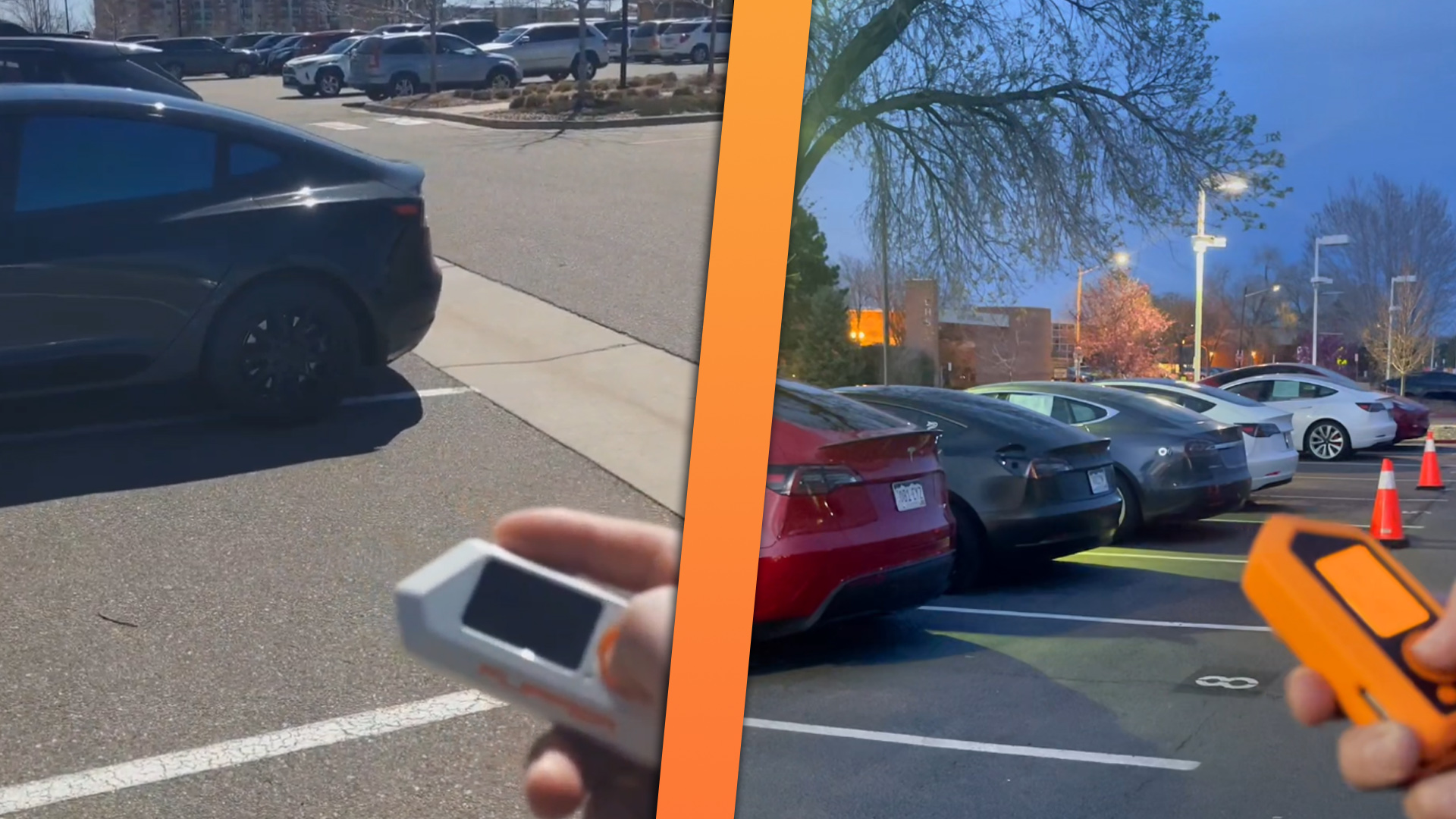

Nerds, script kiddies, geeks, armchair engineers, keyboard jockeys, streamers and pretty much anyone who is a cool kid are totally, absolutely, completely trolling Tesla owners IRL by wirelessly opening the door to their charge ports using small handheld radios. Pwned.
Similar to the recent Honda vulnerability that we demonstrated, this stunt works by capturing and transmitting RF signals that are understood by unsuspecting Teslas. Those Teslas open their charge port expecting to receive a healthy dose of electricity but instead leave owners confused. How’s that taste, n00bs?
The signal captured by these pranksters is actually generated by Tesla charging stations as a convenient way to charge. A compatible charger will automatically transmit the signal when the owner of the vehicle approaches the tail light with the business end of the charging cable. When the Tesla receives the command, it automatically opens the door covering its charge port.
Similarly, the vehicle will open the charge port by tapping a button on the infotainment screen, through the app, by physically pressing on the port, or by issuing the “open butthole” voice command—however, only the charger transmits the signal wirelessly.
The device that these folks are using is a Flipper Zero. While it isn’t a Software Defined Radio (SDR) like the HackRF One, this small $170 device does have a sub-gigahertz radio, which means that it is capable of receiving and transmitting messages on the same frequencies as key fobs and other close-range devices. These small devices can replay the transmission at higher power, allowing the port to be opened from several yards away and without being in the vehicle’s line of sight.
Owners of these devices have shared the capture files across the internet, which means that anybody can download them and start trolling—hence the influx of videos on Tiktok and other social media platforms. The Drive was able to test this troll with the permission of a Tesla owner and confirmed that it is still functional at the time of writing.
Now, Tesla programs the charge door to close if it’s not in use after about two minutes. The time it takes for this to happen can range from a few seconds to a few minutes depending on a number of different circumstances, like walking away from a vehicle, disconnecting from the charger, or other means. Tesla vehicles also don’t currently support vehicle-to-home or vehicle-to-vehicle charging, so it’s not like you can sap power out of the unsuspecting ride, or pour sugar in its non-existent gas tank, so this feels more like a harmless prank than a problem. That being said, I would still be upset if somebody was messing with my car without my permission, so maybe don’t try the one at home.
Got a tip or question for the author? Contact them directly: rob@thedrive.com